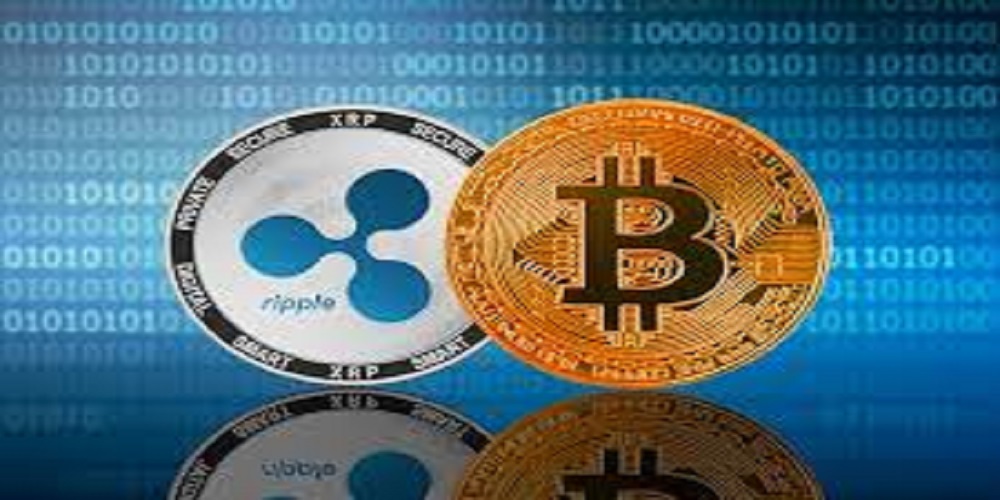In terms of market valuation and general investor interest, bitcoin, the promising cryptocurrency, is the top. However, several alternative possibilities are available for individuals looking to broaden their investment horizons and try out other coins. One of them is Ripple’s XRP (Ripple Ripple Pound). The cryptocurrency was the sixth-largest market cap in July 2021.
Bitcoin
To allow the payment of goods and services, Bitcoin utilizes the public blockchain ledger. The blockchain idea underpins the bitcoin network, a decentralized public database for recording and verifying transactions. The network’s miners are constantly updating the Bitcoin blockchain as transactions are verified. The time and processing resources required to validate its ledger in this manner are compensated to miners by BTC when transactions are validated successfully.
Ripple
Ripple Labs uses XRP as its native coin. A network of investors and credit intermediaries uses its products for international money services security transfers like SWIFT, a service for payment settlement, capital exchange, and remittance systems. Instead of using banks, network members may lend to one another and create credit lines. However, the network’s takeoff was a failure. OpenCoin (a network for fund transfer where major companies and financial services organizations participate as counterparties to transactions) was founded in 2012 by Ripple, three years after Bitcoin kicked in the crypto exchanges.
Important Distinctions
The following are the primary differences between Bitcoin and XRP.
- Each uses a different approach to transaction validation.
The Ripple network does not employ the blockchain mining idea but rather a unique decentralized consensus method in which network nodes perform a poll to verify the validity of a transaction. It makes confirmations very instantaneous and free of central authority. Thus, XRP’s decentralization is while also being quicker and more dependable than even its counterparts. Additionally, compared to Bitcoin, the XRP consensus method uses a minuscule fraction of the energy.
- XRP Is Cheaper Than Bitcoin, But It’s Not As Fast.
The confirmation time for XRP transactions is speedy, and this results in very cheap transaction fees. XRP transfers are subject to a price, just as bitcoin transactions. A tiny amount of XRP is deducted from the user’s account once a transaction gets on the Ripple network (individual or organization).
- There Are More XRP Coins Available for Purchase
About a billion XRP is being pre-mined from launch and eventually put onto the market by its key investors. As opposed to fiat currencies that have an unlimited supply, Bitcoin has a limit of 21 million coins. Because of the cryptocurrency’s fabricated scarcity, investors have taken an interest in its use as a store of wealth.
- The Circulation Mechanisms of XRP and Bitcoin Differ
When miners discover new bitcoins, they release them and add them to the network. Because they don’t have a set release date, they instead depend on network throughput and algorithm complexity to determine how many coins are available at any one time. The XRP supply is via a smart contract. A built-in smart contract said that it would release a maximum of 100 million XRP tokens each month; however, the current circulating supply exceeds that limit by a factor of 50.
Example of Bitcoin vs. Ripple
Here are some analogies to help explain both concepts using real-world examples. Peter, a resident of the United States, makes a trip to Walmart and pays in US dollars for his goods. To trade and invest, he can use his US funds to purchase GBP or JPY and then sell them for a profitable price later on.
As with any other kind of currency trading, Peter can place an order and pay with bitcoins, and one can buy bitcoins to use in trading or investments and then sell them for a profit or loss later on. To deliver $100 to John in Italy from Peter in the United States, he must ask his American bank to carry out the transaction.
Conclusion
This example shows the basics of how Ripple works, although it is a bit more sophisticated. Because of its faster transaction processing speeds and cheaper transaction fees, the Ripple network outperforms the Bitcoin network. 87 For all its flaws, Bitcoin (BTC) is more widely accepted and well-known than Ripple (XRP).
Even after all these years, Bitcoin is still a decentralized, open-source system that anybody may use. 9 Despite its decentralized nature, the Ripple network is owned and managed by a private business of the same name. 13 For everything they share in terms of bitcoin tokens, the two prominent virtual systems serve vastly distinct purposes.

